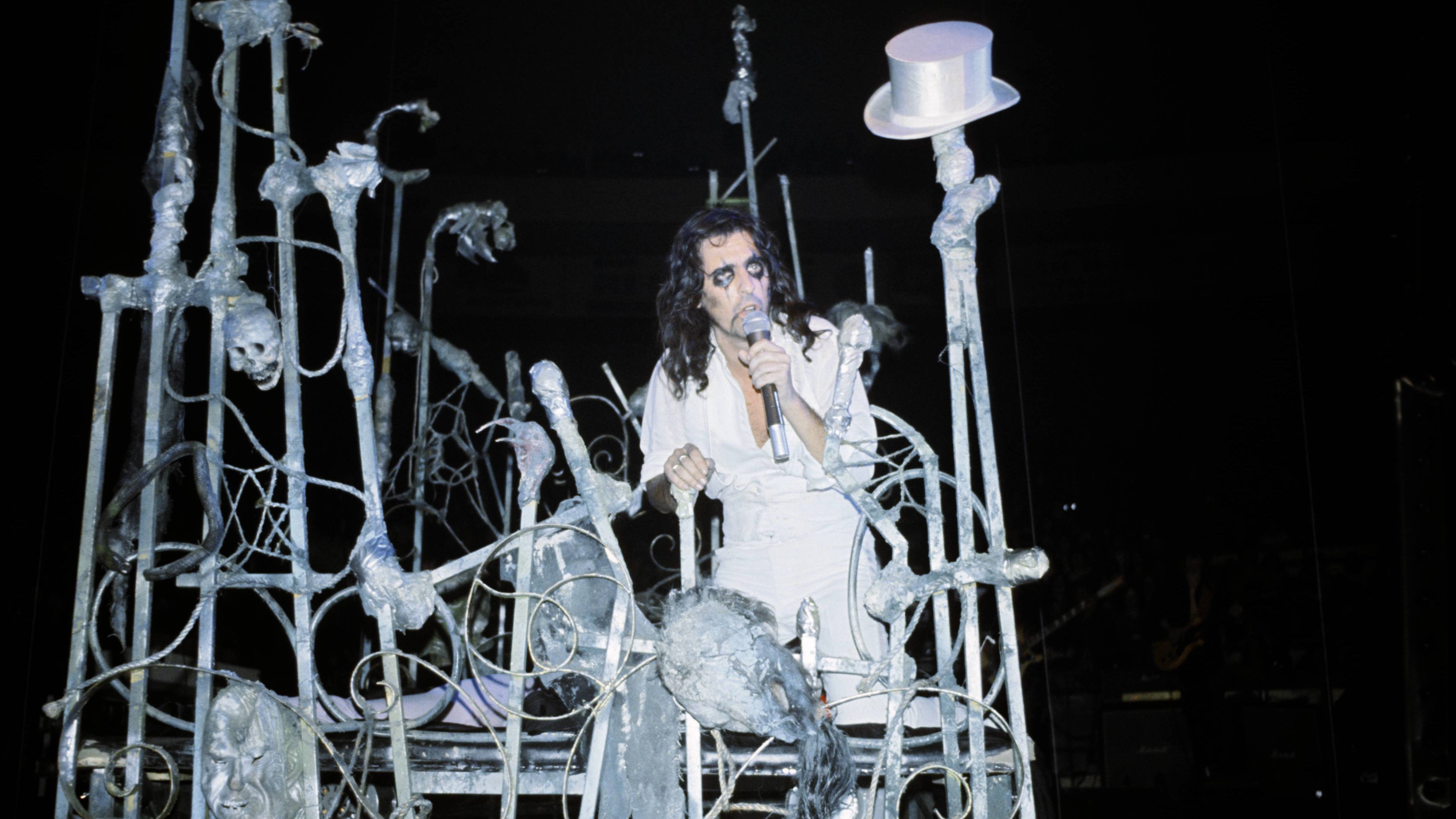This article originally appeared in Classic Rock #83.
It’s not yet 10am and Alice Cooper has been up for ages. He already has one interview under his belt by the time Classic Rock is invited into his plush hotel suite in London’s Victoria. Alice – born Vincent Furnier – is in splendidly fine fettle.
Suntanned and relaxed on the sofa in an open-necked shirt and jeans, Cooper looks quite a bit younger than his almost pensionable years – something that he acknowledges matter-of-factly: “The whole rock’n’roll thing is all about attitude and being in shape.”
Certainly, he appears fitter, healthier and extremely level. After all this time in the business, he’s learned everything he needs to know: what’s right, what’s wrong and what keeps him on top of his game.
Alice Cooper and Vincent Furnier – they never meet. I get up in the morning and play 18 holes of golf, and then I go to the mall with my daughter or my wife, and then I have lunch and I do interviews or take a nap, go to the show – and then for about an hour before the show I turn into Alice.
For two hours I’m Alice and it’s fun and really intense. I do put myself totally in this character. As soon as the curtains close, Alice is gone. He won’t be there until the next night. I put him to bed and I go and play poker with the boys.
The one thing that Alice has in common with Hannibal Lecter is that he considers swearing vulgar. He’s a gentleman. Alice is an aristocratic, arrogant villain.
If a girl pops her shirt open to show her breast, Alice goes (sigh), “How vulgar.” He might say, “I’m going to slit your throat in a second,” but he’d be very gentlemanly about it.
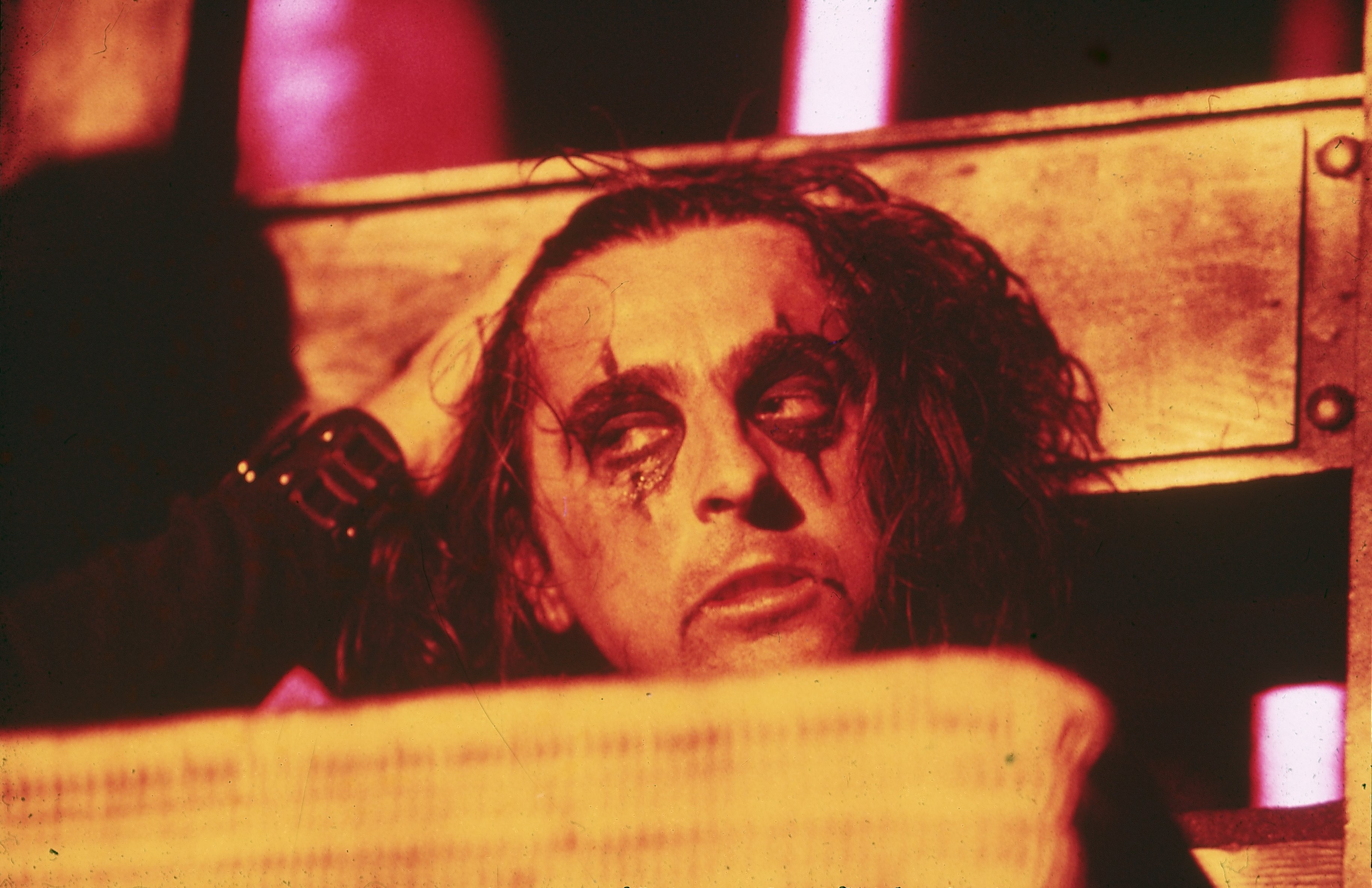
I like a song that’s well written – cook all the juice into it, don’t cook the juice out. You can have a bad song and you can polish it up to look shiny and new, and the third time you hear it you say, “There’s really nothing there.”
You can noodle around with a song. But it’s cos you’re trying to shove a square peg in a round hole.
I honestly don’t think it’s possible to shock people any more. If anybody should know, it’s me. I don’t think you can shock an audience short of killing yourself or somebody else, or chopping an arm off.
Bands have been having sex on stage for a long time. People shake their heads – “Seen it.”
It was easy to shock in the 70s. Parents didn’t want their kids going to see that [Alice Cooper]. Now you turn on CNN and there’s a hostage standing there and they chop his head off in front of you on television. Well, how does my show compare with that?
Is Marilyn Manson really shocking now? I think he does what he does very well. He’s a great showman. He’s got great ideas; most of them are anti-Christian. I don’t buy into his message. You couldn’t find a more diametrical opposition between me and him in our values, but we both do great shows.
Rock’n’roll right now needs a really good shot of garage rock. I’m glad that there are bands like Jet and The White Stripes, groups that are just good little snotty rock’n’roll bands.
There were times in the past when I carried a gun around with me. Two times – right after the Charles Manson thing, cos I lived maybe two miles from there, then after the John Lennon thing. I don’t carry a gun any more. Ted Nugent is probably the only one armed. He goes to Iraq, totally trained.
I’m in better shape at 57 then I was when I was 37. I never smoked. I haven’t had a drink in 23 years. I’m happily married. I’ve never cheated on my wife in 29 years. I don’t have a lot of stress in my life. If you’re leading a stressful life, it’s going to show.
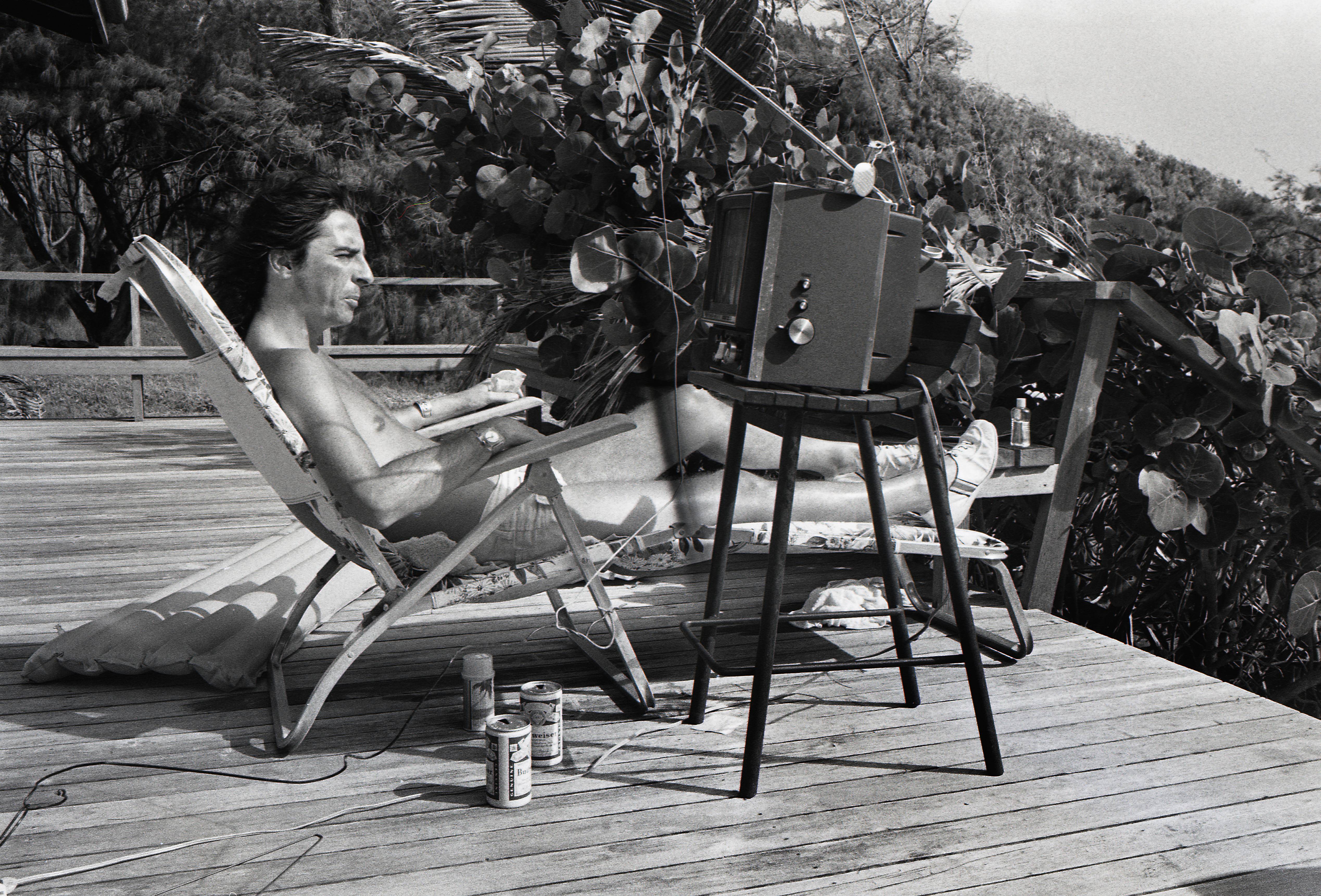
I was always financially in good condition. I always had a manager who made sure of that. There was never a time when I was sitting there going, “Oh man, I’m so worried about this, I’m so worried about that.” To me, it was always, “Go on stage and do the work, get in the studio and do the work.” To me, that was the whole deal, being the consummate professional.
The most important thing I tell bands is you have to write great songs and you have to be professional. You really must do the work. This isn’t an overnight success thing. You’re never going to be so big that you can be late for an interview, that you’re allowed to show up late for a TV show and not know your lines. If you do that, you’re not belonging in the business. How dare you think that your time is more important than the interviewer’s? I’m here 40 years later because of that.
Shep Gordon [manager] and I have been together for 37, 38 years and we still don’t have a contract. I always said, “You do the money and I’ll do the performing and the artistry.” I don’t think there was ever one time where I said, “How much are we getting?”
I know how much I’m worth. I get a statement.
Nobody wants to be an alcoholic. Nobody starts out saying, “I want the mansions and the pretty girls and the great cars and… let me see… I want to be an alcoholic; I want to be a nervous wreck.” It just hits you and you don’t know where it came from.
I went to a hospital for three weeks when I was throwing up blood. I couldn’t walk from here to that door without a drink, and it was time to stop. This was in ’82, ’83. You come out of the hospital and people say, “Oh, you’re cured.” I said, “No, I was healed.”
Aerosmith are at AA meetings every day. Everybody I know that’s a cured alcoholic is in AA or is having therapy or is having bouts with temptation. I’m the most compulsive person you’ve ever met – I have no willpower at all – but I can look at a drink, an ice-cold Budweiser, and I would as soon drink that as put a gun to my head. I’ve never once had a craving for a drink since the hospital. So, in all reality, I walked out totally healed of it.
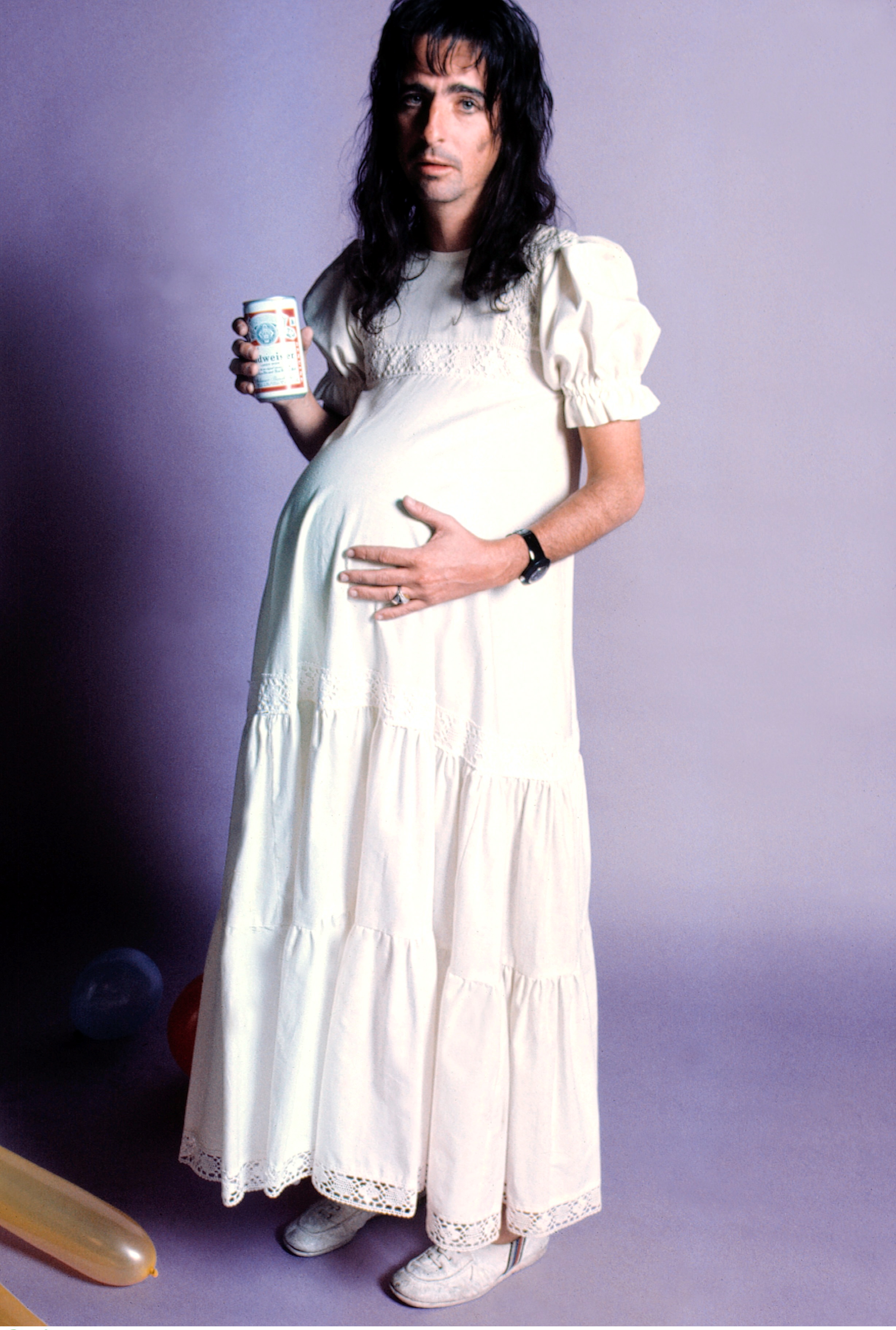
I think it’s spiritual healing. It was like I had cancer one day and not the next day. I’ve had doctors. I’ve told them the whole story. They’ve said, “I agree with you. Very rarely does anybody as addicted as you not ever have a fallback. You’re healed.”
The last year of my alcoholism was hell. The rest of it, believe me, I had a great time drinking. I’m not going to sit here and tell you I didn’t.
Alice Cooper’s point of view is always a little more satirical than other people’s. And his delivery is always a little more venomous.
Alice has certain victims on stage, the characters in the show that are his adversaries. The audience are safe… just as long as you don’t get on the stage. If you do that, then you’re at Alice’s mercy. The first 20 rows are my gasoline.
If you’re going there thinking that I’m going to change your life, you’re wrong. I’m going there to take you away from your life for two hours and return you back safely.
John Lennon was a big influence. There are songs of mine that people said sounded like him. Almost every ballad I’ve done has that kind of feel to it. I don’t think of John Lennon when I’m writing them, though.
I don’t particularly like the message in Imagine – “It’s just us and we’re in control.” I’m a Christian. I would hope that there’s a higher power that’s in control of all of us. Imagine is an escapist song. It’s universalism. It’s saying that all roads lead to heaven, which isn’t something I believe.
If we were all alike, how awful would that be? That’s pretty much what John’s saying in there. It would be nice if nobody fought, if nobody was richer or wiser or funnier than the other, if this and that and this. And it would be really boring. The dynamics of our lives are all different. It’s a great musical song, but it’s absolutely opposed to what I believe.
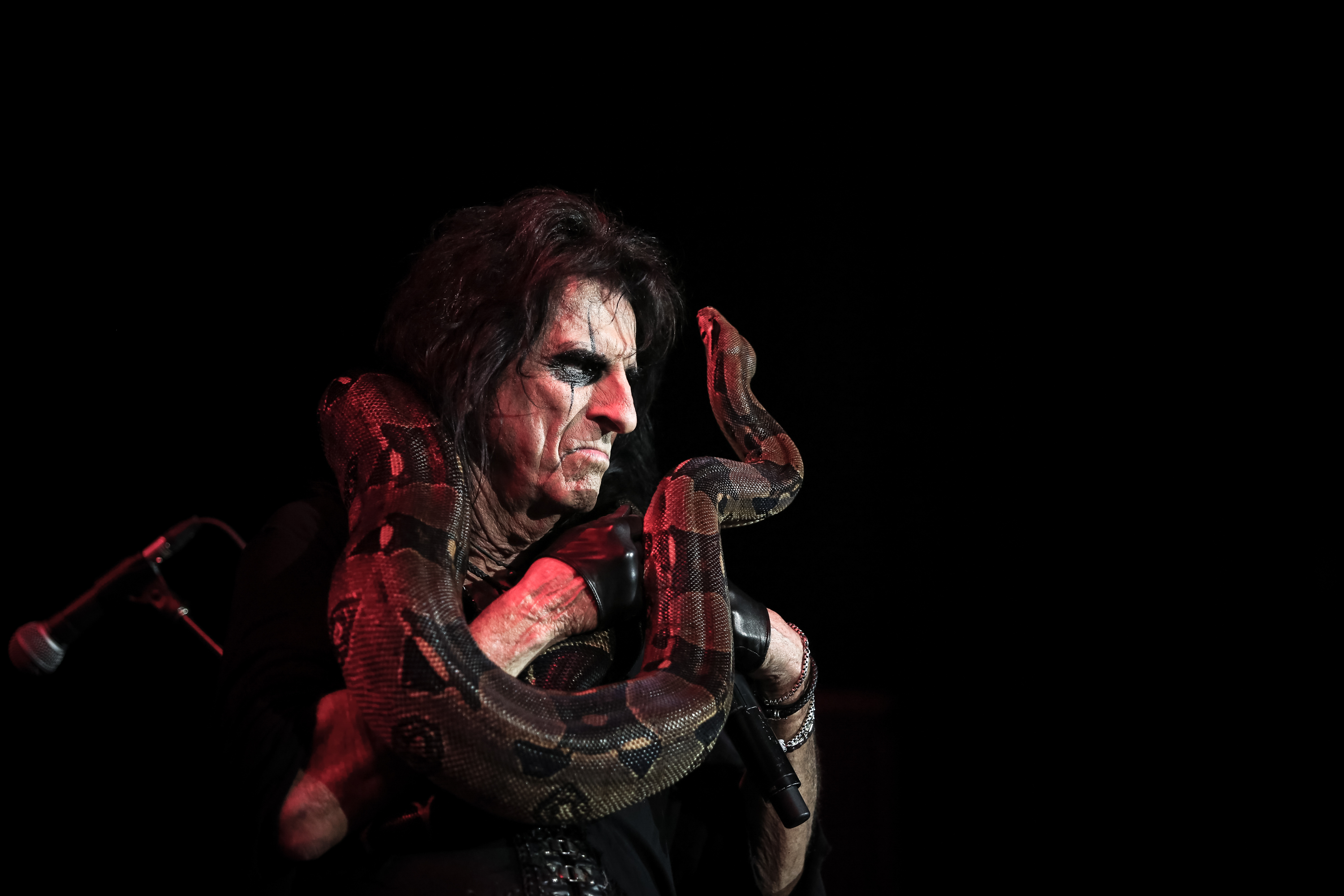
I learnt how to write lyrics from Chuck Berry and Ray Davies. When I was younger, I tried to write a three-minute story, tell you about the characters and have a little twist at the end.
The general consensus when we started out was that we were one of Frank Zappa’s little freak bands. That was the furthest thing from our mind.
We have different snakes on stage. There are times when we’ll go three or four shows without using the snake, and then we’ll think, “Bring the snake back.”
The only reason Alice is here is not the snake, it’s not the guillotine, it’s not the straitjacket. It’s the 14 or 15 Top 20 songs. That’s the reason I’m still here. If we spent 10 hours rehearsing, nine hours was on the music, one hour was theatrics. We realised that without the music, our show was a puppet show. I say to bands, “Guys, if you don’t have the cake, I hope you don’t try to put the icing on. You’d better have that music as the guts of everything.”
I’m a firm believer that Satan isn’t a person sitting around with horns and a tail, some fictitious character. I say to people, “This is someone that wants to destroy your life. Why would you ever invite him in?”
My lyrics are very positive, very anti-Satanic. They make fun of our society, but they always kind of point to a higher force.
I’m a practising Christian. I do Bible study on Wednesday mornings and I go to church on Sunday. I grew up in a Christian home. About 14 years ago, it was time for me to make a commitment, to change my life. I became baptised.
I play rock’n’roll but I don’t buy into that lifestyle. I don’t go into thestrip clubs, I don’t get drunk, and everybody knows that. The way people know I’m Christian is in how I talk and how I act.
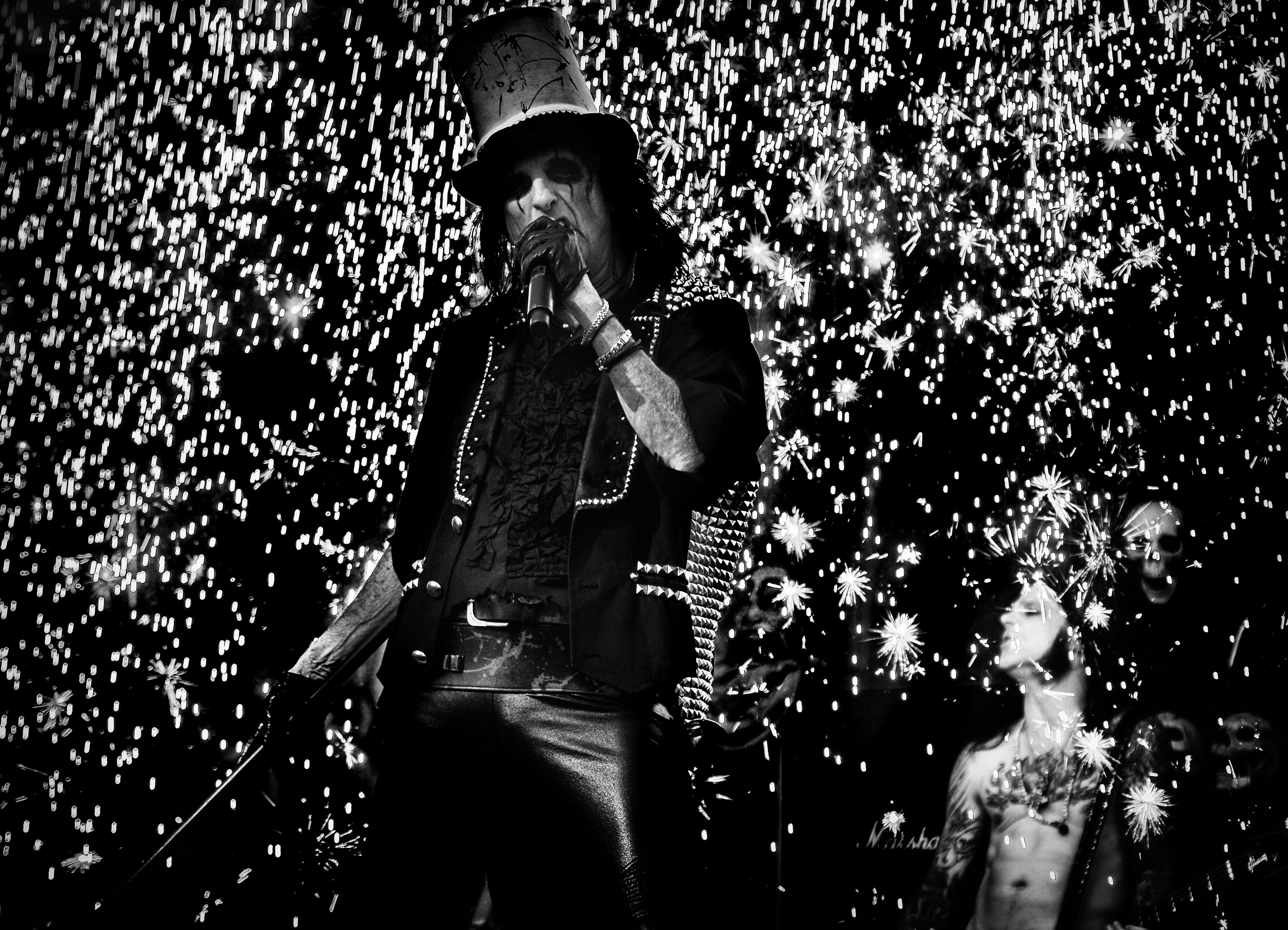
I don’t confine myself to my room. I go to the movies, sign all the autographs, take pictures with everybody. I live a full life.
Dead Babies was never, “Let’s kill babies”. It was about child abuse. It was about how parents don’t take care of their children – ‘Dead babies can’t take care of themselves’. Nobody ever bothered listening to that lyric. It was supposed to make you go, “What?”
The shock value is in the title. It’s like Only Women Bleed – “Let them digest the song.” It’s saying that men will bleed physically, but women… It’s a very feminist statement. It’s been recorded by 13 different women.
Always leave the audience on a party. The encore is party time. We’ve made it through the show, now it’s time to celebrate – balloons, confetti, School’s Out! Everything’s okay.
In all these years, I’ve never had an audience that wasn’t standing and cheering for me. I always said that if I get on stage and there’s nobody there, or if the audience doesn’t react or if at the end of that show I cannot get them standing and cheering and screaming for me, it’s over. I’ll say, “Guys, it was a great run and now I’m going to do something else.”
There might be a time when I just don’t feel like doing it any more – “I want to travel the world with my wife and I want to watch my youngest daughter grow up.” She’s 12 right now.
I’m sure there’s a point in everybody’s career – “I’m ready to write my novel/my play/my movie” or “I’m ready to direct rather than act”. There’ll come that point, but oh no, not yet – at all.
To find out what Dennis Dunaway’s favourite Alice Cooper songs are, then click on the link below.
